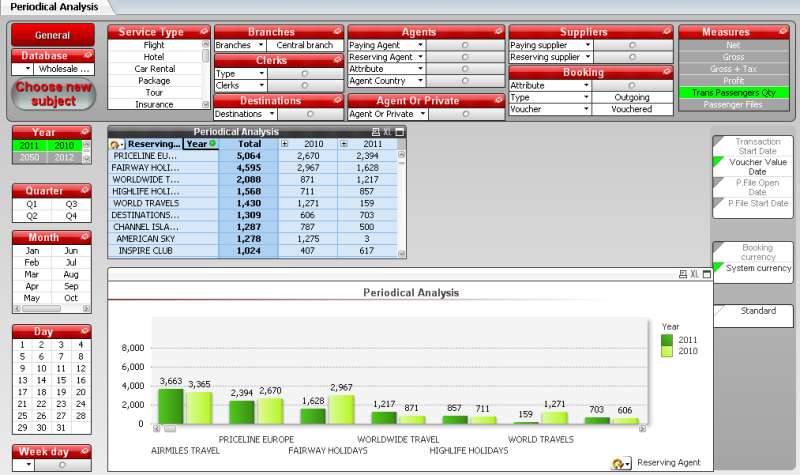
The system enables tour operators and wholesale providers to sell content to travel agents through a wide variety of distribution channels:
Offline
B2E4B: The travel agency employees can contact your office offline (phone, e-mail), and the system users use the B2E selling channel to make reservations for the travel agent.
Online
B2B: The tour operator or wholesale provider can set up a dedicated online selling channel that enables travel agents to make reservations independently.
B2B4C: The tour operator or wholesale provider can set up a white label site for a travel agent. The travel agent's customers can access the site and make reservations, and the system associates these reservations with the travel agent.
B2B4B: The tour operator or wholesale provider can set up a website through which a travel agent can sell services to other travel agents.
Each of these options offers a different selling channel through which content can be sold. You can work with one of them or you can work with all of them.
The travel agents you work with have their own unique requirements, and as a result negotiate separate business terms that apply to the transactions that are opened for their users. These can include commission percentages, and separate payment terms. For billing purposes, reports will need to be sent to the travel agent containing detailed information on the transactions made.
You need to create an account for the travel agent.
You need to define the commission rules that apply to the travel agent.
Once the travel agent has been set up, and the commissions have been defined, travel files can be opened for the travel agent in the Reservations System.
Invoices to the travel agent can be issued automatically or manually (for individual travel files or groups of travel files). Depending on the payment terms and credit limit, the invoices are either paid immediately (cash invoices) or reconciled periodically with the travel agent (credit invoices).
Once payment is received from the travel agent, the system enables you to reconcile the payment with the invoices that were issued to the travel agent.
There are tools that allow you to create reports for and receive business intelligence on travel agents. These are useful for:
Sending information to the travel agent.
Analyzing the data in detail on the travel agent's travel files and balance
Analyzing the profitability of the travel agent's transaction.
Periodical analysis of the travel agent's activity
Comparing sales vs. targets.

For more information, see Setup - Business Environments - Corporate Client/Travel Agent Accounts.
You need to create an account for each travel agent that works with the system. In this account, you define the payment terms and create a credit limit for the travel agent.
You can define whether the amount that appears on invoices issued to the travel agent is the gross amount of the transactions (prior to the deduction of the reduction), or the net amount (after the deduction of the reduction).
Travel agents can be grouped together using Markets. By grouping travel agents together, you can define commission rules that apply to the entire group, and create reports and gather business intelligence on all the travel agents in the market.
You can also separate between the travel agent making the reservation and the travel agent paying for the transaction.
If the travel agent is selling through a B2B channel, you can provide the travel agent with access to a dedicated website, and depending on the authorization level, travel agent users can perform the following actions:
Search for services and make reservations
View reservations
View invoices
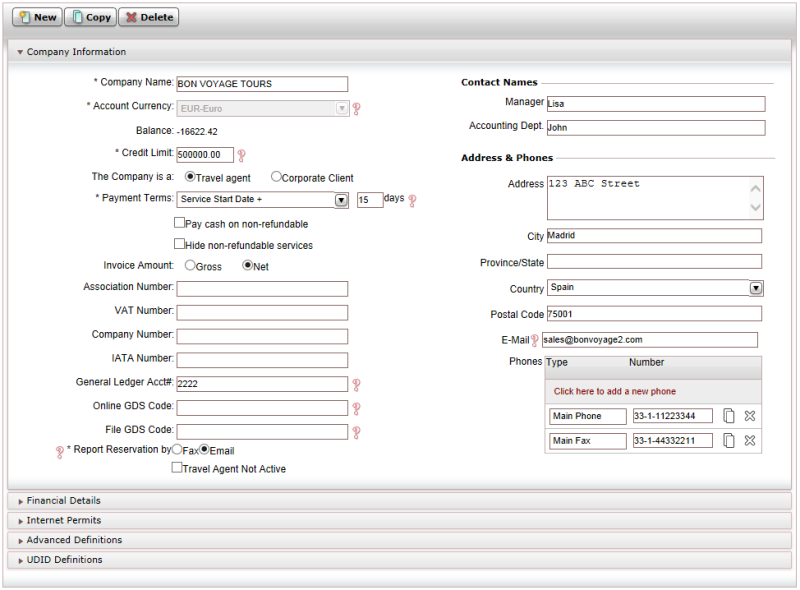
For more information, see Business Rules - Commission/Reduction Definitions
Travel agents receive commissions for the content they sell. In order to enter the terms of the commission into the system, you need to create rules in the Commission Definitions module that reflects the agreement you negotiated with the travel agent.
The commission can be a percentage of a transaction or a fixed amount, and can be defined for specific parameters such as, destination, dates, service type, price level or supplier.
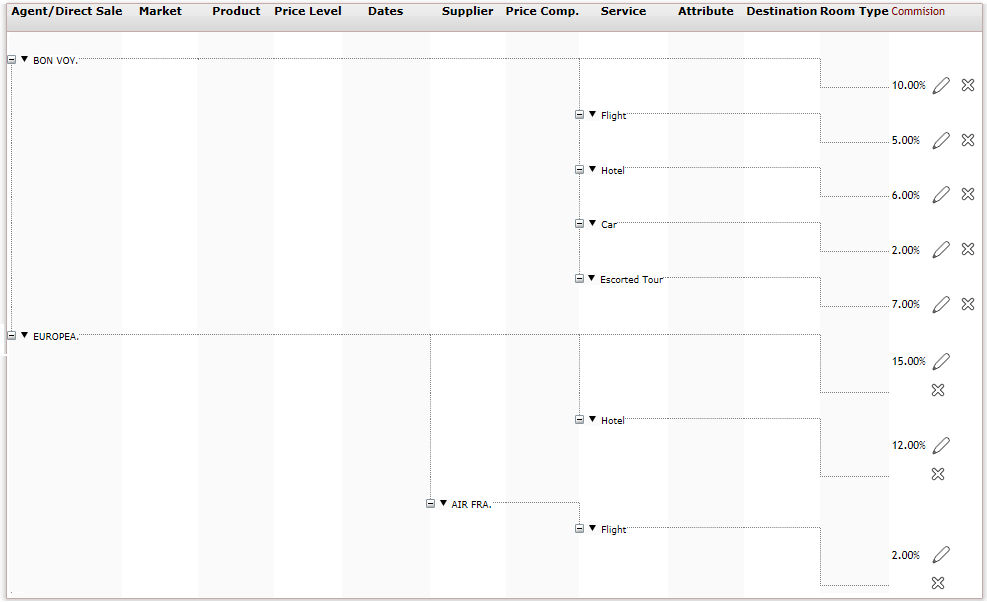
In the Reservations System, you have the option of selecting the agent associated with the user making the reservation. Once the transaction is made, the appropriate commission is added automatically to all the relevant documents
In the B2B website, the user has the option of adding markup before querying a service in the Reservations System. This markup is applied to the search results and can be used to display to the customer a higher price. This markup amount is then added to the travel agent's commission.
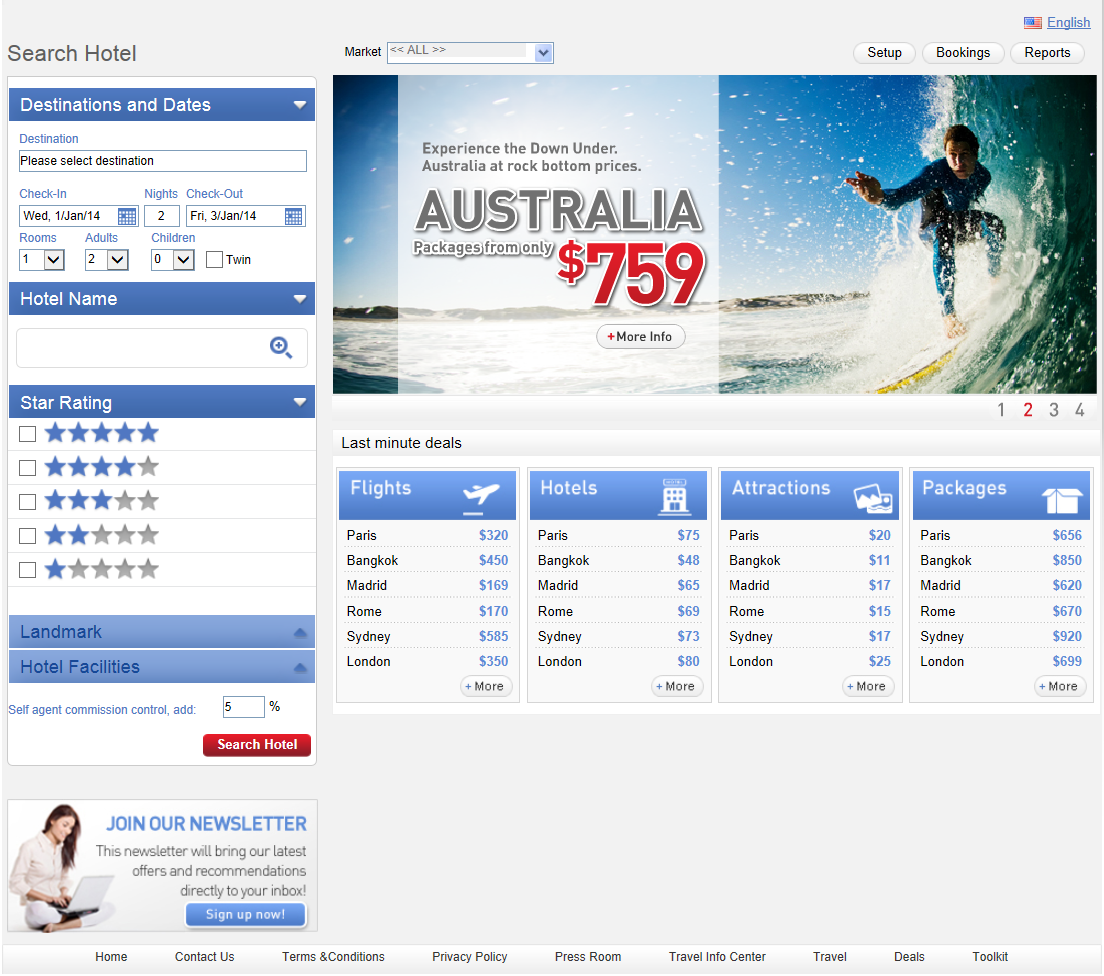
The system offers three methods for issuing invoices to travel agents:
Automatically issue the invoice when a transaction is ticketed
Manually issue the invoice in each individual travel file
Manually mass issue invoices for a group of travel files
When issuing an invoice for a transaction in the travel file, the system checks whether the travel agent has remaining balance on their credit limit.
You can issue a periodic invoice to the travel agent detailing all the transactions that were made during that period.
There are two options for sending a periodic invoice to the travel agent.
Preview statement report: This report provides detailed information on all active invoices issued to the travel agent.

Send periodic statement to travel agent module: This module can be used for automatically generating periodic invoices to travel agents. The module can send a periodic invoice to a single travel agent, or to all the travel agents that belong to the same group.
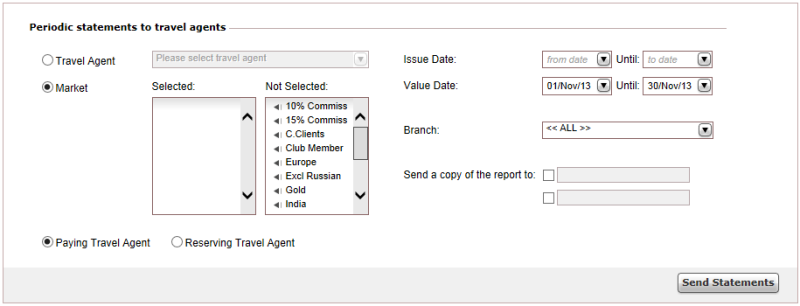
For more information, see Financial - Travel Agent Reconciliation.
After payment is received, you need to reconcile the invoices issued to the travel agent. This is done in the Travel Agent Reconciliation module. In this module you can view a preview list of corporate clients and the amounts they owe, or search directly for documents pending for reconciliation belonging to a specific corporate client. The next step is selecting the uncovered invoices and issuing for them a receipt. If there is any balance left to pay on the receipt it can be used to cover future invoices.
Travel agents can send an advance deposit, and the receipt that is issued for this deposit can be used to cover invoices on an ongoing basis.
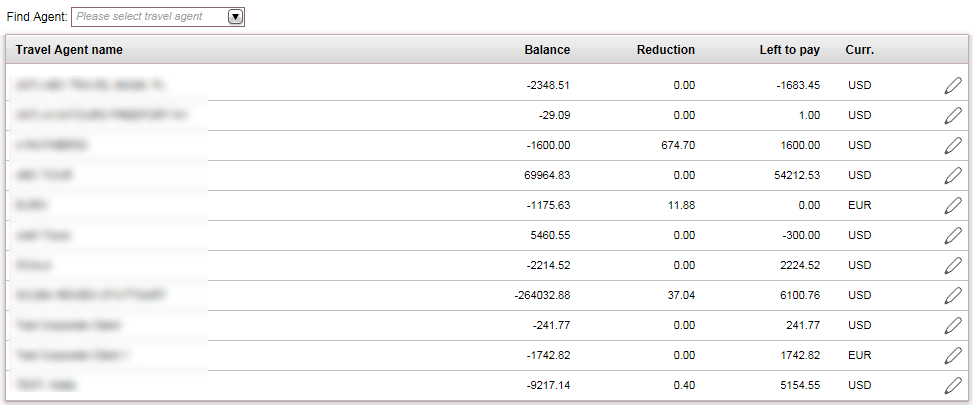
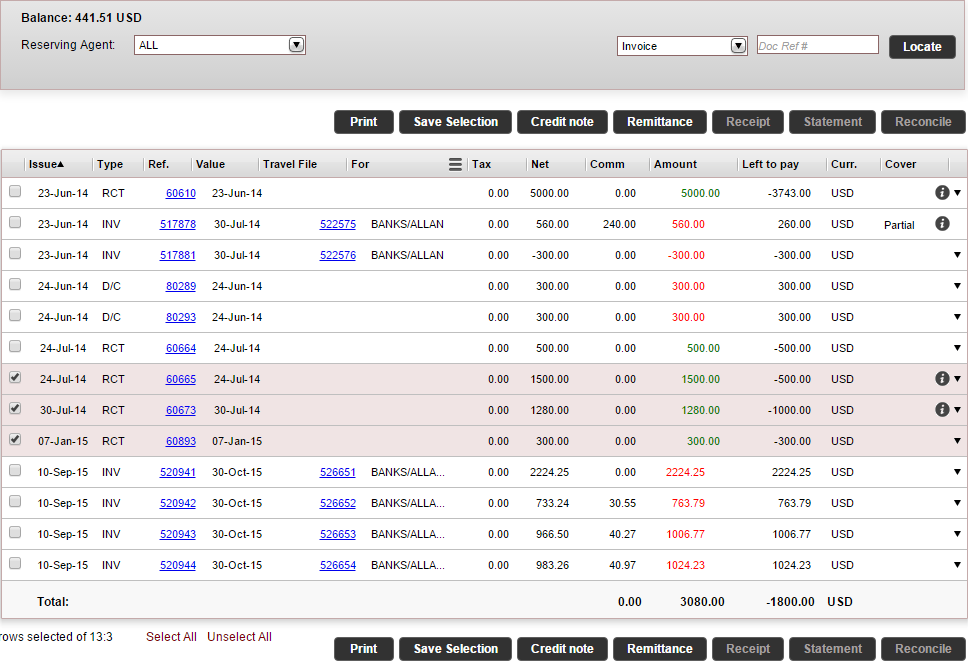
You can use reports to send information to the travel agent and analyze the data on the travel agent's travel files and balance.
The following reports provide useful information on travel agents:
Travel Agent report: Provides detailed information on all the transactions created for the travel agent.
Invoices to agent: Provides detailed information on all invoices issued to travel agents
Accounting snapshot: Provides detailed information on the financial activity of a travel agent.
Aged debts: Provides detailed information on travel files opened for travel agents with open debt.
The business intelligence module can be used for periodic analysis of the travel agent according to service types, suppliers, destinations, and turnover. The information can be displayed on different levels, and is useful for comparing between years.
The following reports can be used analyze the data on the travel agent:
Profitability: This report allows you to analyze the profitability of transactions created for travel agents.
Invoices: This report allows you to analyze data from invoices issued to travel agents.
Sales vs. Target: This report allows you to analyze the data on the actual sales compared to the expected targets.
Periodical analysis: This report allows you to compare the activity of the travel agent across a period of years.
